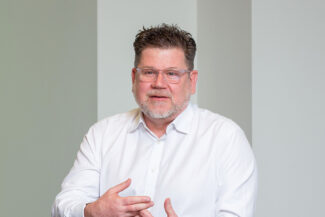The Schmerzgel Redemption
Ratiopharm GmbH v Novartis Consumer Health GmbH (Case C-786/18)
22.06.2020
Background
On 11 June 2020 the European Court of Justice (ECJ) delivered judgment on Ratiopharm v Novartis (C-786/18) relating to the provision of free samples of medicinal products by Ratiopharm to German pharmacists.
Novartis marketed a product known as Voltaren Schmerzgel (Voltaren pain gel) containing the active substance diclofenac (in the UK, this product is marketed as Voltarol)[1]. Ratiopharm markets a generic product also containing diclofenac in Germany known as Diclo-ratiopharm-Schmerzgel. Both medicinal products can be obtained without a prescription.
In 2013, Ratiopharm sales representatives sent free samples of their product to a number of German pharmacists and Novartis commenced proceedings in Germany on the basis that the distribution of free samples to pharmacists contravened German law implementing Directive 2001/83/EC (the Directive). This case turned on Article 96 of the Directive.
Article 96(1) provides that “Free samples shall be provided on an exceptional basis only to persons qualified to prescribe them” (emphasis added) and subject to certain conditions.
Article 96(2) provides that “Member States may also place further restrictions on the distribution of samples of medicinal products”.
For the purposes of this case, it was accepted that while pharmacists are qualified to supply medicinal products, they are not qualified to prescribe medicinal products[2].
German law implemented the Directive by specifying free samples of medicinal products could be distributed lawfully to doctors, dentists and veterinarians (i.e. “persons qualified to prescribe”), but made no mention of pharmacists (i.e. “persons qualified to supply”). It is possible that Article 96(1) inadvertently omitted to refer to “persons qualified to supply” as envisaged by Recital 51 of the Directive.
German Bundesgerichtshof referred two questions of EU law interpretation to the ECJ for a preliminary ruling:
- Is Article 96(1) to be interpreted as meaning that pharmaceutical companies may distribute free samples of medicinal products to pharmacists (provided that the other conditions contained in Article 96(1) are fulfilled)?; and
- If so, does Article 96(2) permit a Member State to enact national provisions preventing the distribution of free samples to pharmacists?
Advocate General’s Opinion
Advocate General Pitruzzella published an opinion on 30 January 2020. The AG took a literal approach to Article 96 and concluded that the provision of free samples of medicines was limited to persons qualified to prescribe them. In recognising the need to balance the need for pharmaceutical companies to promote their goods and the need for healthcare professionals to have objective information about the products they were to prescribe or supply, the AG considered that interpreting Article 96 restrictively would not threaten the internal market. The AG did not draw a distinction between medicinal products that require a prescription and those that do not require a prescription.
ECJ Judgment
In a rather unusual move, the ECJ answered a slightly different question than that which had been asked and departed, at least in part, from the AG’s Opinion. However, in the ECJ’s defence, it appears as though it answered the question that perhaps should have been referred. Whilst the ECJ held that Article 96 did not authorise the provision to pharmacists of free samples of prescription-only medicinal products, the ECJ held that there was no prohibition on providing pharmacists with free samples of medicinal products for which a prescription is not required.
In its decision, the ECJ notes that Recital 51 of the Directive states that it should be possible to “provide samples of medicinal products free of charge to persons qualified to prescribe or supply them” (emphasis added) subject to certain restrictions. The persons qualified to supply medicinal products wording is missing from Article 96. However, the ECJ considered that there was a valid public policy reason for allowing pharmacists to receive free samples of non-prescription medicinal products in that it would allow them to familiarise themselves with new medicinal products and their use. In doing so, the ECJ departed from the AG’s literal interpretation of Article 96 and identified a distinction between prescription-only and non-prescription medicinal products which did not previously exist.
While the ECJ does not specifically address any restrictions that might apply to the provision of samples of non-prescription medicines to pharmacists, it seems likely that the restrictions set out in Article 96(1)(a)-(g) would also apply to such samples[3].
How does the UK’s implementation of Article 96 stack up?
Article 96 of the Directive is implemented in the UK by Regulation 298 of the Human Medicines Regulations 2012, which is headed “Free samples for persons qualified to prescribe or supply medicinal products” in a clear nod to Recital 51 of the Directive. However, that is the last reference to persons qualified to supply”. Regulation 298 solely addresses the provision of free samples to recipients “qualified to prescribe medicinal products”. Section 6.12 of the Blue Guide[4] further clarifies that free samples of medicinal products may only be provided to persons qualified to prescribe medicinal products. Neither Regulation 298 nor the Blue Guide draw any distinction between prescription-only or other medicinal products. Regulation 298 is also reflected in clause 17 of the Prescription Medicines Code of Practice.
Conclusion
Despite Brexit, this judgment from the ECJ remains relevant to the interpretation of Regulation 298 of the Human Medicines Regulation 2012 in the UK during the transition period. The Court found that there is no prohibition on the distribution to pharmacists of free samples of medicinal products for which a prescription is not required. We wait to see whether the MHRA or the Government will address this issue.
The case provides a rare example of the ECJ declining to follow the Opinion of the AG and in fact exercising its discretion to answer a question which had not been asked of it but which it, presumably, felt should have been asked.
———————–
[1] This product is now sold by GSK following acquisition of the product portfolio.
[2] We note that there are circumstances in which pharmacists are able to prescribe, but that was not the situation in this case.
[3] As alluded to in paragraph 51 of the judgment
[4] See here

Alex Denoon
Author

Sarah Hill
Author

Freya Ollerearnshaw
Author

Sean-Paul Brankin
Author
Natalie Simpson-Hassell
Emilia Richards

Victoria Baron
Author

Angelica Martellato
Author
Elizabeth Carter
